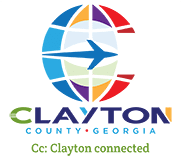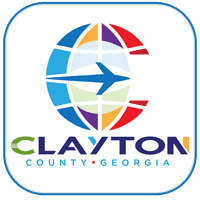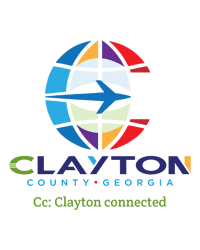WHEREAS, on March 13, 2020, the President of the United States declared the COVID-19 pandemic a national emergency; and
WHEREAS, on March 13, 2020, the Chairman of the Clayton County Board of Commissioners also entered an order declaring a local emergency for Clayton County beginning March 16, 2020 and enacted several emergency powers in order to allow the County to quickly and appropriately respond to the COVID-19 pandemic; and
WHEREAS, on March 14, 2020, the Governor of the State of Georgia declared that a Public Health State of Emergency exists in the State of Georgia due to the public health emergency from the spread of COVID-19; and
WHEREAS, on March 16, 2020, the President of the United States in conjunction with the Centers for Disease Control (CDC) issued Coronavirus Guidelines for America — 15 Days to Slow the Spread; and
WHEREAS, public health experts, including those at the CDC and the National Institutes of Health (NIH), have advised that individuals infected with COVID-19 are contagious even while experiencing minor or no symptoms and implored leaders to take immediate action to prevent further community spread of COVID-19;
WHEREAS, preventing and slowing community spread of COVID-19 provides health systems additional time to obtain personal protective equipment necessary to protect health care workers and medical equipment necessary to treat COVID-19, and is therefore vital to the health of the nation;
WHEREAS, the Centers for Disease Control and Prevention (“CDC”) has described the symptoms of COVID-19 as including fever, cough and shortness of breath which may occur 2-14 days after exposure (www.cdc.gov/COVID19-symptoms) and has recommended maintaining physical separation of no less than six (6) feet between persons and urged that any gathering of over 10 people be discontinued or prohibited (www.cdc.gov/coronavirus/2019- ncov/community/retirement/guidance-retirement-response.html)
WHEREAS, public health experts have issued guidelines which also include a recommendation that communities with evidence of community transmission consider closing restaurants, food courts, gyms and other indoor and outdoor venues where groups of people congregate; and
WHEREAS, on March 23, 2020, the Governor issued Executive Order No. 03.23.20.01, which requires the Department of Public Health to order that certain specific higher risk populations to isolate, quarantine, or shelter in place for fourteen (14) days; and
WHEREAS, Executive Order No. 03.23.20.01 further orders that no business, establishment, corporation, non-profit corporation, or organization shall allow more than ten (10) persons to be gathered at a single location if such gathering requires persons to stand or be seated within six (6) feet of any other person; and
WHEREAS, according to the Georgia Department of Public Health COVID-19 update at noon on March 31, 2020, Georgia now has 3,817 confirmed cases of COVID-19, including 95 confirmed cases in Clayton County; and
WHEREAS, according to the Georgia Department of Public Health COVID-19 update, 108 individuals in Georgia have died and 818 have been hospitalized after contracting COVID-19; and
WHEREAS, the Centers for Disease Control and Prevention (CDC) indicates that there is evidence of widespread community transmission in Georgia; and
WHEREAS, at least one study indicates that the peak number of deaths in Georgia will not occur until on or near April 23, 2020; and
WHEREAS, if COVID-19 continues to spread in Clayton County, it may greatly strain the resources and capabilities of county government, municipal governments, and local public health agencies that provide essential services, including services for containing and mitigating the spread of COVID-19; and
WHEREAS, pursuant to Section 34-4(d)(10) of the Code of Clayton County, the Chairman of the Board of Commissioners has the ability to exercise such powers as may be deemed necessary to promote and secure the safety and protection of the civilian population during an emergency; and
WHEREAS, pursuant to Section 34-9(a) of the Code of Clayton County, the Chairman of the Board of Commissioners may institute a curfew when it is determined necessary to protect and safeguard the people and the property of the County; and
WHEREAS, one of the purposes of the Georgia Emergency Management Act of 1981 is to confer upon the Governor and the executive heads of the governing bodies of the political subdivisions of the state emergency powers; and
WHEREAS, pursuant to O.C.G.A. Section 38-3-28, Clayton County is authorized to make, amend, and rescind orders, rules, and regulations as necessary for emergency purposes and to supplement carrying out the emergency management laws not inconsistent with executive orders implemented by the Governor; and
WHEREAS, there continues to exist emergency circumstances as a result of COVID-19 within the geographical boundaries of Clayton County requiring extraordinary and immediate corrective actions for the protection of the health, safety, and welfare of the residents of Clayton County; and
WHEREAS to prevent or minimize illness and/or injury to people resulting from the COVID-19 pandemic, consistent with Executive Order 03.23.20.01 issued by the Governor, it is necessary to take certain actions, including but not limited to, the social distancing measures set forth herein; and
WHEREAS, based upon available information from the CDC, the Georgia Department of Public Health, and County health partners concerning the spread of COVID-19 and available resources, it is necessary to that the maximum number of people self-isolate in their place of residence to the maximum extent feasible, while enabling essential services to continue, in order to slow the spread of COVID-19 to the maximum extent possible; and
WHEREAS, based upon the President’s Coronavirus Guidelines for America 15 Days to Slow the Spread and the Governor’s Executive Order No. 03.23.20.01, when people need to leave their place of residence, whether to obtain or perform vital services, or to otherwise facilitate authorized activities necessary for continuity of social and commercial life, they should at all times reasonably possible comply with social distancing guidelines;
WHEREAS, after consultation with local health care providers, mayors in the jurisdictional bounds of Clayton County and the County’s EMA director, this amended Local Emergency Order is necessary to protect the health and well-being of the citizens of Clayton County; and
NOW, THEREFORE, pursuant to the authority vested in me as Chairman of the Clayton County Board of Commissioners by local and state law;
IT IS HEREBY ORDERED that:
1. Shelter in place. All individuals currently living within the unincorporated jurisdiction of Clayton County (the “County”) shall remain at their place of residence. To the extent individuals are using shared or outdoor spaces, they must at all times as reasonably possible maintain social distancing of at least six feet from any other person when they are outside their residence. All individuals may leave their residences only for:
a. Essential Activities
b. Essential Governmental Functions
c. To operate Essential Businesses.
Individuals experiencing homelessness are exempt from this Section, but are strongly urged to obtain shelter, and governmental and other entities are strongly urged to make such shelter available as soon as possible and to the maximum extent practicable (and to utilize Social Distancing Requirements as defined in Section 10 below).
2. All businesses with a facility in the County, except Essential Businesses as defined below in Exhibit A, are required to cease all activities at facilities located within the County except Minimum Basic Operations, as defined in Section 8. For clarity, businesses may also continue operations consisting exclusively of employees or contractors performing activities at their own residences (i.e., working from home). All Essential Businesses are strongly encouraged to remain open. To the greatest extent feasible, Essential Businesses shall comply with Social Distancing Requirements as defined in Section 10 below, including, but not limited to, when any customers are standing in line
3. All public or private assemblages, events and gatherings shall be prohibited within the County. This includes, but is not limited to, weddings, religious gatherings, parties, funerals, sporting events, social events, conferences and other gatherings. Exceptions apply to critical facilities as may be determined by the County but explicitly include critical government facilities providing essential services, schools or institutions of higher learning, grocery stores and pharmacies, hospitals and medical offices and facilities. Nothing in this Order prohibits the gathering of members of a household or living unit.
4. Essential Activities. For purposes of this Order, individuals may leave their residence only to perform any of the following
“Essential Activities.” But people at high risk of severe illness from COVID-19 and people who are sick are urged to stay in their residence to the extent possible except as necessary to seek medical care. In addition, individuals who have tested positive for COVID-19, who are suspected to have COVID-19 based on symptoms and a known exposure to a person with COVID-19 or who have been in close contact with a person with known or suspected COVID-19 are required by the Georgia Department of Public Health to isolate or quarantine themselves at home.
a. To engage in activities or perform tasks essential to their health and safety, or to the health and safety of their family or household members or partners or significant others (including, but not limited to, pets), such as, by way of example only and without limitation, obtaining medical supplies or medication, visiting a health care professional, or obtaining supplies they need to work from home.
b. To obtain necessary services, supplies or food for themselves and their family or household members, or to deliver those services or supplies to others, such as, by way of example only and without limitation, canned food, dry goods, fresh fruits and vegetables, pet supplies, fresh meats, fish, and poultry, and any other household consumer products, and products necessary to maintain the safety, sanitation, and essential operation of residences.
c. To engage in outdoor activity, provided the individuals comply with Social Distancing Requirements as defined in Section 10, such as, by way of example and without limitation, walking, hiking, running, or bicycling.
d. To perform work providing essential products and services at an Essential Business or to otherwise carry out activities specifically permitted in this Order, including Minimum Basic Operations.
e. To care for a family member or pet in another household.
5. For purposes of this Order, individuals may leave their residence to work for or obtain services at any “Healthcare Operations” including hospitals, clinics, dentists, pharmacies, pharmaceutical and biotechnology companies, other healthcare facilities, healthcare suppliers, home healthcare services providers, mental health providers, or any related and/or ancillary healthcare services. “Healthcare Operations” also includes veterinary care and all healthcare services provided to animals. This exemption shall be construed broadly to avoid any impacts to the delivery of healthcare, broadly defined. “Healthcare Operations” does not include fitness and exercise gyms and similar facilities.
6. For purposes of this Order, individuals may leave their residence to provide any services or perform any work necessary to the operations and maintenance of “Essential Infrastructure,” including, but not limited to, public works construction, construction and all related activities (in particular affordable housing or housing for individuals experiencing homelessness), airport operations, water, sewer, gas, electrical, oil refining, roads and highways, public transportation, solid waste collection and removal, internet, and telecommunications systems (including the provision of essential global, national, and local infrastructure for computing services, business infrastructure, communications, and web-based services), provided that they carry out those services or that work in compliance with Social Distancing Requirements as defined this Section, to the extent possible.
7. Essential Government Functions. For purposes of this Order, all first responders, emergency management personnel, emergency dispatchers, court personnel, and law enforcement personnel, and others who need to perform essential services are categorically exempt from this Order. Further, nothing in this Order shall prohibit any individual from performing or accessing “Essential Governmental Functions,” as determined by the governmental entity performing those functions. Each governmental entity shall identify and designate appropriate employees or contractors to continue providing and carrying out any Essential Governmental Functions.
8. For the purposes of this Order, “Minimum Basic Operations” include the following, provided that employees comply with Social Distancing Requirements to the extent possible, while carrying out such operations.
a. The minimum necessary activities to maintain the value of the business’s inventory, ensure security, process payroll and employee benefits, or for related functions.
b. The minimum necessary activities to facilitate employees of the business being able to continue to work remotely from their residences.
9. For purposes of this Order, “residences” include hotels, motels, shared rental units and similar facilities.
10. Social Distancing Requirements. For purposes of this Order, “Social Distancing Requirements” includes maintaining at least six (6) foot social distancing from other individuals, washing hands with soap and water for at least twenty seconds as frequently as possible or, if soap and water is not available, using an alcohol-based hand sanitizer containing at least 60% alcohol, covering coughs or sneezes (into the sleeve or elbow, not hands), regularly cleaning high-touch surfaces, and not shaking hands,
11. In recognition that the County does not have the personnel or resources to monitor and police distancing or gathering limitations or stay at place of residence requirements for all individuals currently living within the territorial limits of unincorporated Clayton County, the Clayton County Police Department and other departments of the County as deemed necessary by the Chief Operating Officer under this Order are authorized to support compliance with this Order through information delivery and education of individuals regarding the imminent threat to public health posed by COVID-19.
12. This Order shall become effective at 12:01 a.m. on April 1, 2020 and will continue to be in effect until 11:59 p.m. on April 12, 2020, or until it is extended, rescinded, superseded, or amended in writing by the Chairman.
13. If any provision of this Order to the application thereof to any person or circumstance is held to be invalid, the reminder of the Order, including the application of such part or provision to other persons or circumstances, shall not be affected and shall continue in full force and effect. To this end, the provisions of this Order are severable.
14. All Ordinances or parts of Ordinances in conflict with this Ordinance are, to the extent of such conflict, hereby temporarily suspended.
15. The Clayton County Emergency Management Agency shall continue operating under the Emergency Operations Plan and Incident and Support Annexes and (2) the County continue to implement sections 34-4; 34-5; 34-6; 34-7; 34-8 of the Official Code of Clayton County, Georgia;
16. To the extent that any provisions of this Order conflict with the March 16, 2020 Declaration of Emergency or any Local Emergency Order issued thereunder, the more restrictive provisions shall control.
ENTERED at 4:45pm on March 31, 2020
Exhibit A
The following businesses are considered “Essential Businesses” under this Order:
a. Healthcare Operations and Essential Infrastructure;
b. Grocery stores, certified farmers’ markets, farm and produce stands, supermarkets, food banks, convenience stores, and other establishments engaged in the retail sale of canned food, dry goods, fresh fruits and vegetables, pet supply, fresh meats, fish, and poultry, and any other household consumer products (such as cleaning and personal care products). This includes stores that sell groceries and also sell other non-grocery products, and products necessary to maintaining the safety, sanitation, and essential operation of residences;
c. Food cultivation, including farming, livestock, and fishing;
d. Businesses that provide food, shelter, and social services;
e. Newspapers, television, radio, and other media services;
f. Gas stations and auto-supply, auto-repair, and related facilities;
g. Banks and related financial institutions;
h. Hardware stores;
i. Plumbers, electricians, exterminators, janitorial and other service providers who provide services that are necessary to maintaining the safety, sanitation, and essential operation of residences, essential activities, and Essential Businesses;
j. Businesses providing mailing and shipping services, including post office boxes;
k. Educational institutions-including private K-12 schools, colleges, and universities-for purposes of facilitating distance learning or performing essential functions, provided that social distancing of six-feet per person is maintained to the greatest extent possible;
l. Laundromats, dry cleaners, and laundry service providers;
m. Restaurants and other facilities that prepare and serve food, but only for delivery or carry out. Schools and other entities that typically provide free food services to students or members of the public may continue to do so under this Ordinance on the condition that the food is provided to students or members of the public on a pick-up and take-away basis only. Schools and other entities that provide food services under this exemption shall not permit the food to be eaten at the site where it is provided, or at any other gathering site;
n. Businesses that supply products needed for people to work from home;
o. Businesses or manufacturers that supply other essential businesses with the support or supplies necessary to operate;
p. Businesses that ship or deliver groceries, food, goods, or services directly to residences;
q. Airlines, taxis, and other private transportation providers providing transportation services necessary for Essential Activities and other purposes expressly authorized in this Ordinance;
r. Home-based care for seniors, adults, or children;
s. Residential facilities including hotels, motels, shared rental units and similar facilities and shelters for seniors, adults, and children;
t. Professional services, such as legal, accounting services, real estate services, when necessary to assist in compliance with legally mandated activities;
u. Businesses that support and perform repair or construction work for business or homes;
v. Road construction, maintenance and repair and related engineering and construction services;
w. Industrial Manufacturers;
x. Federal, State, County and Municipal services
y. Utilities (gas, electricity, phone, cable)
z. Funeral homes, crematories, and cemeteries
aa. Trash collection, processing, and disposal
bb. Animal shelters or animal care or management and crematories
cc. Cafeterias located within medical, industrial, government, child care or elderly care facilities or other such production facilities that are performing essential functions that are necessary to promote health, welfare and vital resources in Clayton County. These facilities are strongly encouraged to stagger meal times, limit use as much as feasible to achieve physical distancing, and to thoroughly follow CDC protocols of cleaning.
dd. Essential Critical Infrastructure Workers as defined by the US Department of Homeland Security and executed by the Cybersecurity and Infrastructure Security Agency.


 Click Clayton
Click Clayton








